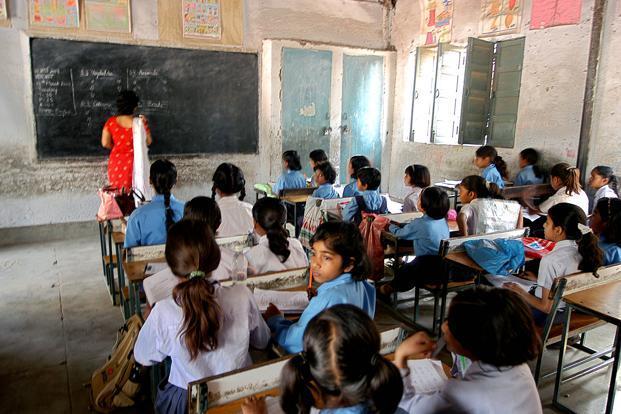Stringent norms to ensure pupil-teacher ratio, facilities to students
*Completely prohibits private tuition by Govt teachers
Mohinder Verma
JAMMU, Sept 6: Major improvements are on the cards in the school education sector in Jammu, Kashmir and Ladakh as the Central Law, which will be applicable from November 1, 2019, prescribes stringent norms to ensure proper pupil-teacher ratio in the schools and all the facilities to the students. Moreover, this law completely prohibits private tuition by the Government teachers.
As per the Jammu and Kashmir Reorganization Act passed by the Parliament early last month, the Central Law—Right of Children to Free and Compulsory Education Act, 2009 shall be applicable to the Union Territory of Jammu and Kashmir and Union Territory of Ladakh from November 1, 2019.
“Though the State Government is providing free and compulsory education as prescribed under the Central Law yet there are many other vital aspects which have not been taken care of till date and following extension of Central Law to both the Union Territories there will be major improvements in the school education sector as law passed by the Parliament prescribes stringent measures to ensure proper pupil-teacher ratio and adequate facilities to the students”, legal experts said.
Under the Central Law, there is a special provision for children not admitted to, or who have not completed elementary education. “Where a child above six years of age has not been admitted to any school or though admitted could not complete his or her elementary education then he or she shall be admitted in a class appropriate to his or her age”, read the Act.
“Provided that where a child is directly admitted in a class appropriate to his or her age, he or she shall, in order to be at par with others, have a right to receive special training. Moreover, a child so admitted to elementary education shall be entitled to free education till completion of elementary education even after 14 years”, the Central Law further reads.
Section 11 of the Central Act states: “With a view to prepare children above the age of three years for elementary education and to provide early childhood care and education for all children until they complete the age of six years, the Government shall make necessary arrangements for providing free pre-school education”.
According to the legal experts, within three years from the applicability of Central Law, the Government shall ensure that the pupil-teacher ratio as specified in the Schedule is maintained in each school.
As per the Schedule, for First Class to Fifth Class, there shall be two teachers for up to 60 students while as between 61 to 90 students there shall be three teachers. Similarly, there shall be five plus one Head Teacher for above 150 students. For above 200 students, pupil-teacher ratio (excluding Head Teacher) shall not exceed 40.
For Class Sixth to Class Eighth, there shall be at least one teacher per class to ensure one teacher each for Science and Mathematics, Social Studies and Languages. “Where admission of children is above 100 there shall be a full time Head Teacher, part time instructors for Art Education, Health and Physical Education and Work Education”, read the Norms and Standards under the Schedule.
As far as building is concerned, the Central Law states: “There shall be all-weather building consisting of at least one class-room for every teacher and an office-cum-store-cum-Head Teacher’s room, barrier free access, separate toilets for boys and girls, safe and adequate drinking water facility to all children, playground, arrangements for securing the school building by boundary wall or fencing. Moreover, there shall be a library in each school providing books on all subjects including story books”.
Mentioning that no school shall be established or recognized unless it fulfils the Norms and Standards specified in the Schedule, the Act states: “Where a school established before the commencement of this Act doesn’t fulfil the Norms and Standards it shall take steps to meet the same at its own expenses within a period of three years”.
Section 27 of the Central Law prohibits deployment of teachers for any non-educational purposes other than the decennial population census, disaster relief duties or duties relating to elections. “No teacher shall engage himself or herself in private tuition or private teaching activity”, read Section 28 of the Act.
“Though private tuition by Government teachers was banned in Jammu and Kashmir few years back yet order relating to the same was quashed by the High Court and later a circular was issued mentioning that Government teachers can take private tuition classes but only after receiving formal permission from the School Education Department”, sources said.
In order to ensure that all these and other provisions are implemented in letter and spirit, the Act states: “The State Commission for Protection of Child Rights shall, in addition to the functions assigned under the concerned Act, shall also examine and review the safeguards for rights provided by or under this Act and recommend measures for effective implementation; inquire into complaints relating to child’s right to free and compulsory education”.
Trending Now
E-Paper


